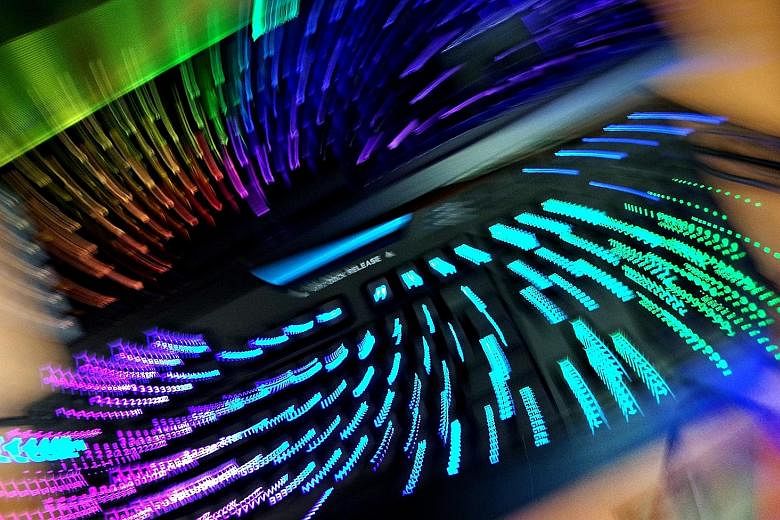One of the first things Ms Kristin Tan, 27, takes to a new job is her trusty mechanical keyboard - the same one she has been using for the past six years.
"The sound and feel of the keys is pure sensory joy. You also type faster and more accurately. After using them, going back to factory keyboards feels clunky and tiring," said Ms Tan, a special needs teacher.
Such mechanical keyboards have become increasingly popular over the past few years, not just among gamers, but also regular PC users, who swear by them for their better performance due to tactile and audio feedback.
And hardware firms such as Logitech, Razer and SteelSeries have responded in kind, offering different types of keyboard for various uses.
"We see encouraging growth of Logitech G mechanical gaming keyboard sales year on year," said a Logitech spokesman.
Said Razer product marketing manager Kushal Tandon, "Mechanical keyboards are now the standard for high-end competitive play."
Last year, sales of gaming PC hardware, which includes keyboards, crossed the US$30 billion (S$42 billion) mark for the first time, topping out at US$30.6 billion, according to Jon Peddie Research, which tracks the PC hardware market.
Mechanical keyboards differ from keyboards that are commonly bundled together with a computer, which tend to feature a membrane-type or rubber-dome layer.
They use physical switches to register each key-press, making them more accurate and responsive.
These switches are usually colour-coded depending on how sensitive they are, with common colours being black, blue, brown and red.
Mechanical keyboards usually go for a premium, with a price range between $100 and $400. They are usually marketed at gamers, who value these keyboards for their feedback and precision while gaming, and for being able to withstand the rigours of fast-paced movements.
"For competitive PC gaming and eSports, a mechanical keyboard and a high-quality mouse are a must," said Mr Sam Reynolds, a market analyst for client devices at research firm IDC.
"During eSports competitions, players will perform 300 actions per minute, with top-ranking players hitting 600. A generic keyboard simply won't work for them."
But people also use them outside of gaming, such as heavy typists in office roles.
"Since my desk-bound occupation revolves around writing, a mechanical keyboard fits the bill," said legal associate Timothy Quek, 28.
However, some of the very qualities that endear mechanical keyboards to their users are those which make them unsuitable for office use.
Keyboards with blue switches, for example, are notoriously loud as each key has a slider that hits the bottom of the keyboard to give it its distinctive "clack" sound. This constant clackity-clack can be very distracting in an office environment.
To enthusiasts, the allure of mechanical keyboards lies in the simple pleasure they provide every time there's work or typing to be done.
"Owning a mechanical keyboard is akin to owning a sports car. It's for people who want a tool to make something otherwise mundane - like driving or typing - more unique and personal," said Mr Quek.


